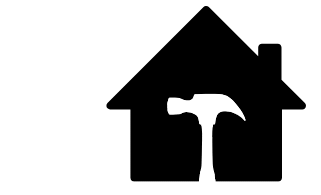Biomass boilers are a great renewable technology that can save you a fortune in heating bills.
Although they may not be the cheapest of investments, with domestic systems costing around £10,000 and larger commercial boilers starting at around £20,000, they’re certainly worthwhile.
If you’re interested in a biomass boiler, then you’ll first of all want to speak with an expert in the industry.
They will be able to draw up plans and offer a system unique to your property. There will be certain variables to consider, though:
- Type of fuel
Biomass boilers use renewable sources to produce heat, and this could be logs, wood pellets, ch, or even agricultural waste. The product you use should be chosen based on the availability and individual needs. A lot will come down to the type of home you own and the storage space available.
- Fuel feed
This will typically be either manual or automatic. Your initial investment will be cheaper if you purchase a manual feed boiler, but obviously, an automatic feeder will be easier.
The size of the biomass boiler
- Of course, the size will be dependent upon the household or building that is to be heated. The higher the kW, the more heat your biomass boiler will produce.duce
- Depending on the system, you may need a backup boiler to provide your full heating needs.
A biomass boiler professional will come out to your home to make an assessment of the property. Any quotation that’s provided should cover all work and equipment, including the submission of Renewable Heat Incentive paperwork. The RHI is a Government scheme which ensures you’re paid for the heat you produce.
Overall, a biomass boiler will set you back more than if you purchased a gas or oil system, but what’s to be considered is the money you’ll save on bills and earn through the RHI. The price of wood is not expected to increase at the same rate as fossil fuels will in the future, either.
Oil boiler installation cost
Heating accounts for at least 60% of the average household energy bills, so inefficient systems will be costing hundreds of pounds extra every year. On top of this, if a problem arises, you’ll be left without heat and hot water until you can afford the call-out charges and repair bills to fix the fault.
An oil that is older than 10 years is much more likely to suffer a fault, so you want to at least have a six-monthly service to make sure everything runs smoothly. Without this, you risk losing heat when you need it most during the colder months.
Oil is a more expensive fuel as it is, compared to gas and electricity. Therefore, you should be considering ways to cut your annual bills, and a replacement oil boiler is the perfect way to do just that.
For homeowners not connected to the gas grid, oil is one of the foremost ways to heat the home. If by chance you do have access to the National Grid, even consider switching your supply to mains gas.
Oil boiler installation cost
Depending on your home’s needs, an oil boiler can vary in cost. Below you can see the different prices associated with an oil boiler:
- Combination oil boiler installation cost – £2,310
- Heat only oil boiler installation cost – £1,300
- Average oil boiler installation cost – £1,900
Of course, the above prices are based on past consumers who have installed an oil boiler, and every home and system is different. To get the best oil boiler prices in your area, be sure to compare quotes by using a quick and easy service.
Replacement oil boiler benefits
There are several benefits associated with a replacement oil boiler, and these would include:
- Heating bill reductions
By replacing your boiler, you’ll have the opportunity to reduce your energy bills by heating your home more efficiently. New, modern boilers convert more hot gas into heat for the home, reducing energy bills up to £300 a year by ensuring you don’t need to turn up the thermostat.
- Minimise the risk of boiler breakdown
A modern boiler will be less likely to break down than your older system, which could be working at efficiencies as low as 70%. A breakdown can end up costing you hundreds of pounds on call-out charges and repair bills.
- Create a safer home
Inefficient boilers can be quite dangerous as poisonous carbon monoxide emissions could be leaked. Monoxide poisoning kills and hospitalises hundreds of people every year. The gas is almost undetectable, being clear and odourless, so ensure to have your boiler serviced regularly to avoid a fault.




